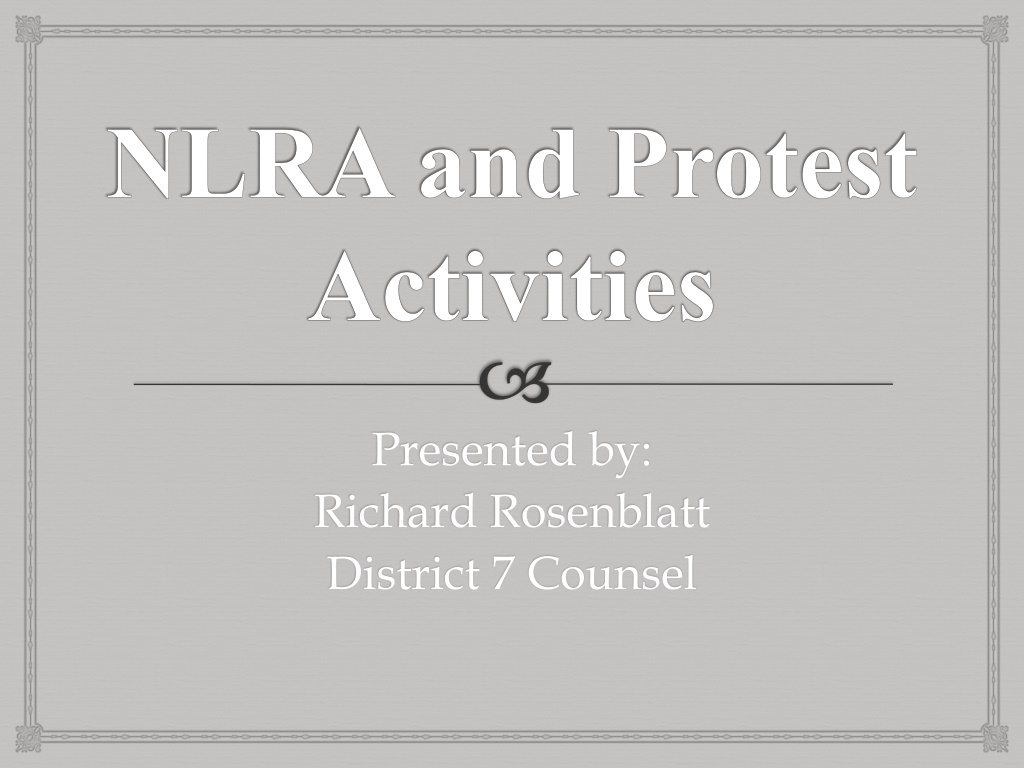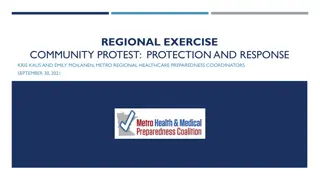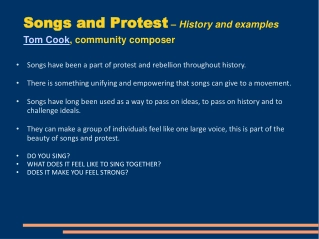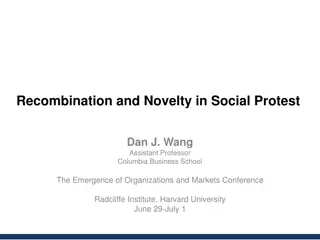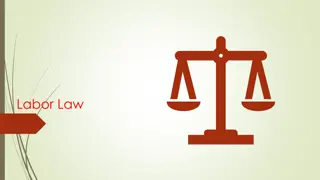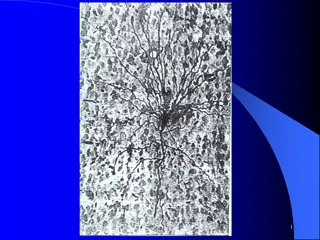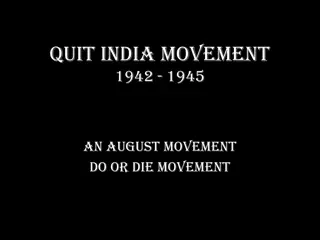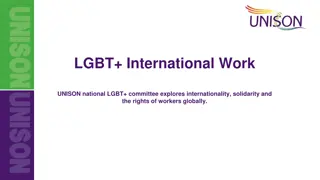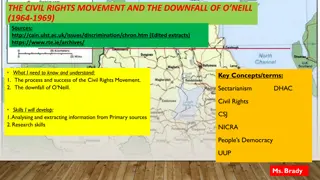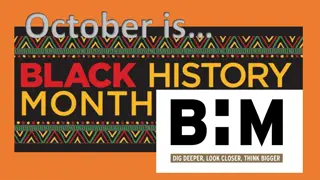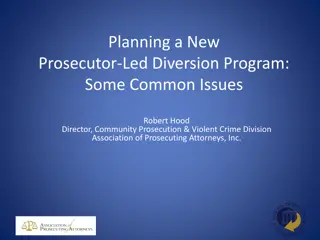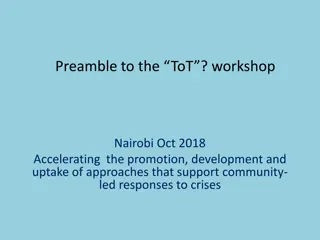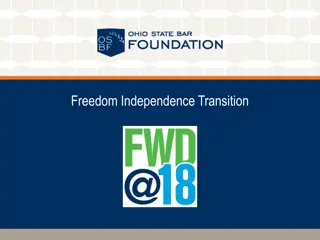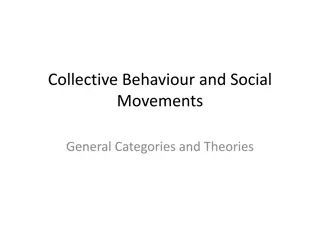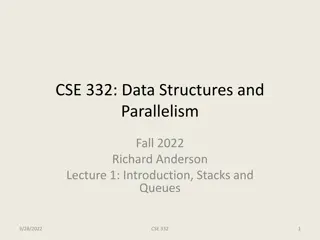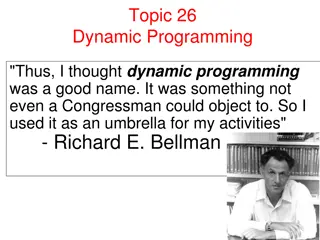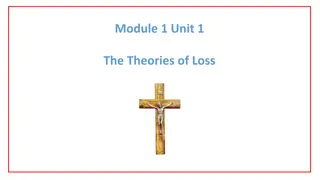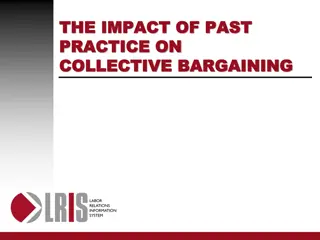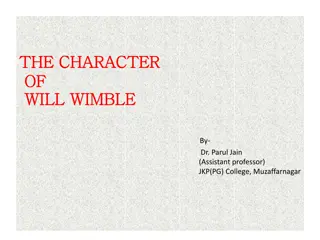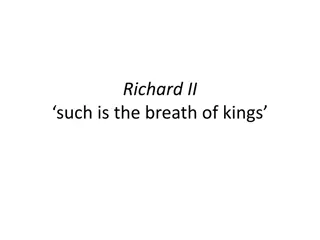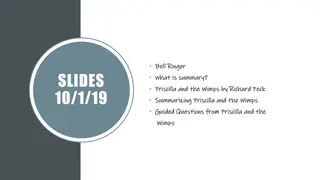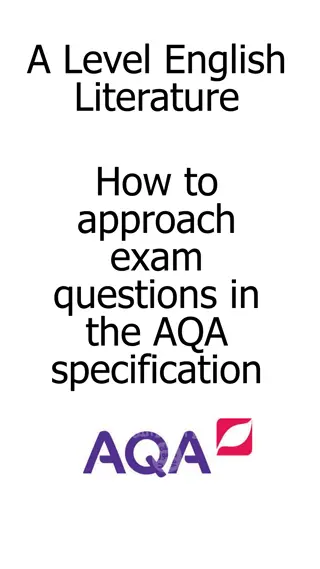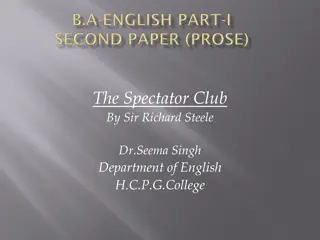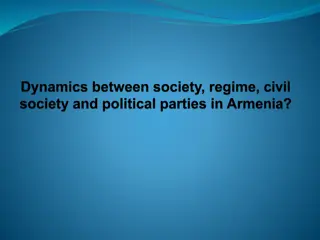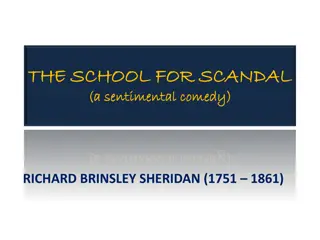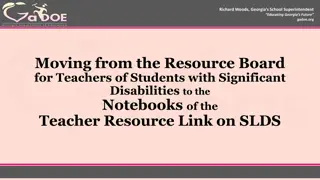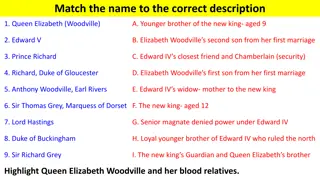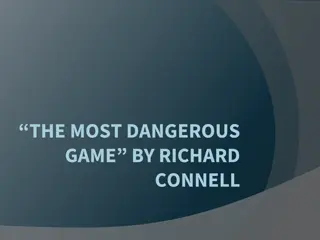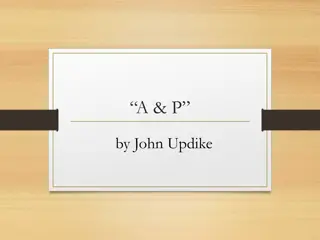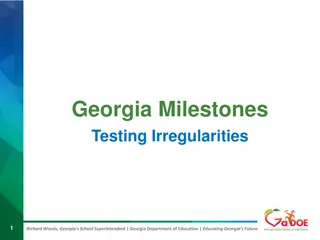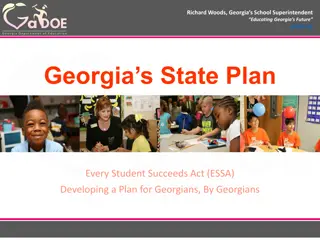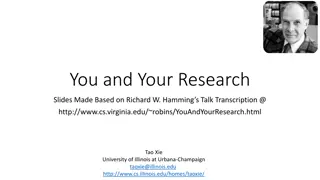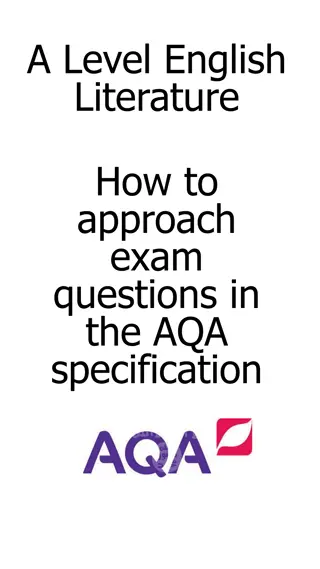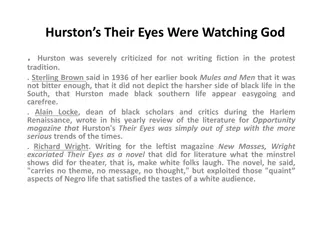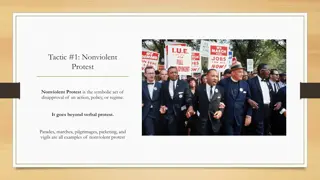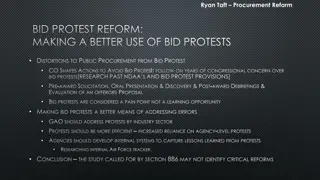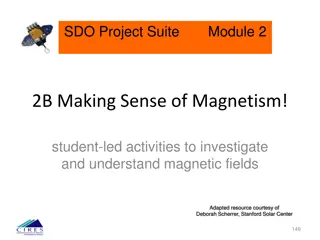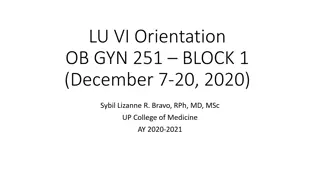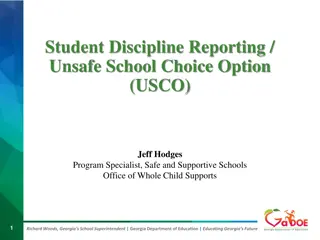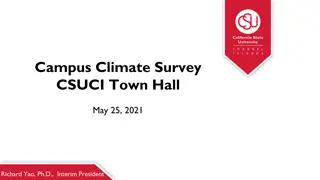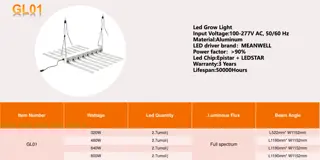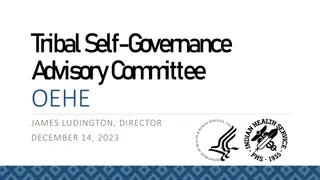Understanding NLRA and Protest Activities Led by Richard Rosenblatt
Protected concerted activities lie at the core of Section 7, with specific focus on wages, hours, and working conditions. Recognizing strikes as a form of protected concerted activity is essential, distinguished by whether they pertain to unfair labor practices or economic reasons. The significance of different types of strikes, including unfair labor practice strikers and economic strikers, is clarified along with the implications of making unconditional offers to return to work. Understanding the rights and restrictions related to strikes can help navigate the complexities of labor disputes effectively.
Download Presentation

Please find below an Image/Link to download the presentation.
The content on the website is provided AS IS for your information and personal use only. It may not be sold, licensed, or shared on other websites without obtaining consent from the author. Download presentation by click this link. If you encounter any issues during the download, it is possible that the publisher has removed the file from their server.
E N D
Presentation Transcript
NLRA and Protest Activities Presented by: Richard Rosenblatt District 7 Counsel
Protected Concerted Activity Core of Section 7. Two parts: Protected and Concerted
Protected Concerted Activity Protected Concerns wages, hours and/or working conditions
Protected Concerted Activity Concerted Involves or concerns more than one employee
Protected Concerted Activity when one or more employees engage in conduct related to wages, hours and working conditions for more than one employee
Strikes Form of Protected Concerted Activity Strike: Withhold services Must concern wages, hours and/or working conditions
Strikes No Contract In Effect Legal Strike 2 Types: Unfair Labor Practice Striker Economic Striker
Strikes Unfair Labor Practice Striker Basis for Strike Needs to Be in Part Because of Unfair Labor Practice By Employer Determination Is By NLRB (or Courts) Can be After-The-Fact
Strikes Economic Striker Any one who engages in lawful strike if not an unfair labor practice striker
Strikes Significance of Whether Economic or Unfair Labor Practice Strike? Only when make unconditional offer to return to work
Strikes Unfair Labor Practice Striker Can NOT Be Permanently Replaced Must return striker to work when make unconditional offer to return to work
Strikes Economic Striker Can be permanently replaced Must have "permanently" replaced striker during strike Once permanent replacement leaves then must recall economic striker if striker has made unconditional offer
Strikes Striker Misconduct No need to recall striker who engaged in striker misconduct Striker Misconduct: conduct that is found to reasonably tended to coerce or intimidate employees in the exercise of rights protected by the Act. Misconduct: can be physical harm or verbal threats
Strikes Where do you picket? Public vs. Private Property Right to picket on public product State Courts can dictate time, place & number of pickets Cannot block ingress or egress from building Cannot takeover private property (sit down strikers) Picketing on Private Property Balancing Test
Strikes Partial Strikes Refuse to work on certain mandatory Assignments while accepting pay Not protected activity Intermittent Strike Multiple Strikes of short duration over same labor dispute
Strikes During Contract NO STRIKE CLAUSE: prohibits Strikes during term of Agreement Unfair Labor Practice Causes Strike Serious ULP unless No Strike Clause Prohibits Strike Over Grievance Courts Prohibit If Arbitration Of Grievances Boys Market Injunction
Strikes Sympathy strikes Strike in Support of Other Strikers Depends how No Strike Clause Is Written and Interpreted Sympathy Striker Stands in Shoes of the Strikers that Striking in Sympathy or Support Of
Strikes Wage Re-Opener Depends How No Strike Clause Is Written A General No-Strike Provision Not Prohibit
Secondary Boycotts Section 8(b)(4) prohibits Secondary Boycotts Conduct that threatens, restrains or coerces a Secondary Employer
Secondary Boycotts Primary Employer Employer with whom Union Has the Dispute Secondary Employer Employer Who is Neutral, Not Involved In Dispute
Secondary Boycotts Conduct that Threatens, Restrains Or Coerces Picketing Secondary Employer Non-Picketing Conduct that Confrontational
Secondary Boycotts Hand billing Hand billing is free speech; not conduct and therefore not threaten, restrain, or coerce Defamation: if not true, harms the person s reputation and know that not true or with reckless disregard for the truth
